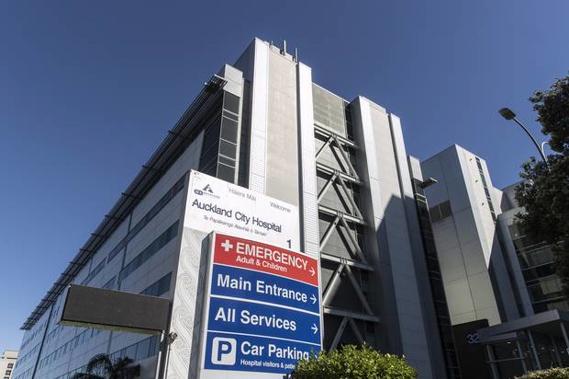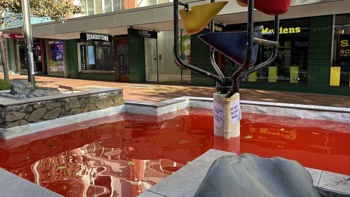
Surgeons have demanded an urgent "sea change" at one of the country's largest health boards and accused management of recklessness.
The extraordinary step came shortly after a major review found cancer services had been affected by workplace and inter-DHB politics stretching back years.
That contributed to "significant gaps" in head and neck cancer services in Auckland and Northland, with staff giving anecdotal examples of cancer progressing during delays.
Patients surveyed for the review gave harrowing stories of battling cancer and for access to essential treatment
More than one person who had their tongue and voicebox removed in surgery were later told they didn't meet the criteria for speech therapy. That is despite such support being critical to their ability to regain communication and avoid being tube fed for the rest of their life.
Other cancer survivors are being forced to pay $5000 a year for devices to help them breathe, and which would be entirely funded if they lived in a neighbouring DHB.
Documents obtained by the Weekend Herald include a letter from an Auckland District Health Board surgical team involved in the treatment of head and neck cancer, sent in March to the head of the oral health unit.
In it, the oral and maxillofacial surgeons make a last-ditch plea for their colleague, who they alleged had been "stone-walled" by surgeons in another team and badly treated by clinical leadership.
He was on the verge of being lost to the public health system, the surgeons wrote, and if that happened staffing would drop back to unsafe levels and "the public will be at risk".
ADHB leadership had done nothing despite appeals for help, they claimed, including chief executive Ailsa Claire.
"A sea change is required by the ADHB, and urgently," the letter states. "With kindness and support this precarious situation could have been avoided. Instead the ADHB has been reckless."
The surgeon whose treatment was the subject of the letter declined to comment. An ADHB spokeswoman said he "has not left our employment at this time".
Joanne Gibbs, the health board's director of provider services, said patients could be assured the standard of care they received hadn't been affected.
"In this case, thanks to the commitment of our oral and maxillofacial surgeons and others in the head and neck service, we have been able to put systems and process in place to ensure patient care is maintained."
Things had moved on considerably since the March 13 letter, Gibbs said, with the surgeons meeting with the chief executive and others on the ADHB executive for extensive discussions on the issues raised. Ongoing meetings will review progress, address issues and develop a "service improvement and investment plan".
"Auckland DHB welcomes honesty and transparency and encourages staff to speak up about workplace issues ... the letter is not an accurate reflection of the current engagement between the oral and maxillofacial surgeons and DHB leadership."
An area the surgeons work in, the treatment of head and neck cancer, was subject to a major review finalised last November, and which found disturbing shortfalls across Northland, Waitemata, Auckland and Counties-Manukau DHBs.
A lack of collaboration – blamed partly on years of "internal and inter-DHB politics" – had meant services across the region had grown organically, not strategically. This had "undeniably impacted the quality of care in the region," the review concluded.
Waitemata DHB staff told the review delays for patients getting treatment at ADHB were a reason local services were developed, and gave "anecdotal examples of disease progressing while waiting".
And in feedback on oral health services in the region, concern was expressed about "inadequate" surveillance of premalignant conditions, meaning cancer could be missed.
Dr Wilbur Farmilo, the clinical chair of the head and neck cancer review, said it was expected it would highlight things to do better.
Work to implement its recommendations had started, Farmilo said, including involving patients in decisions and better ongoing care. The review found a majority of patients spoke highly of their primary treatment.
"Our patients can be confident they currently receive high quality care that compares well nationally and internationally," Farmilo said. "However, as their stories demonstrate, there are areas where we can make meaningful improvement."
Health Minister David Clark last month tasked the Ministry of Health with preparing a new strategy to improve cancer care.
"One of the major priorities for the strategy is a focus on the whole health system working together more effectively to improve quality of life."
Take your Radio, Podcasts and Music with you









